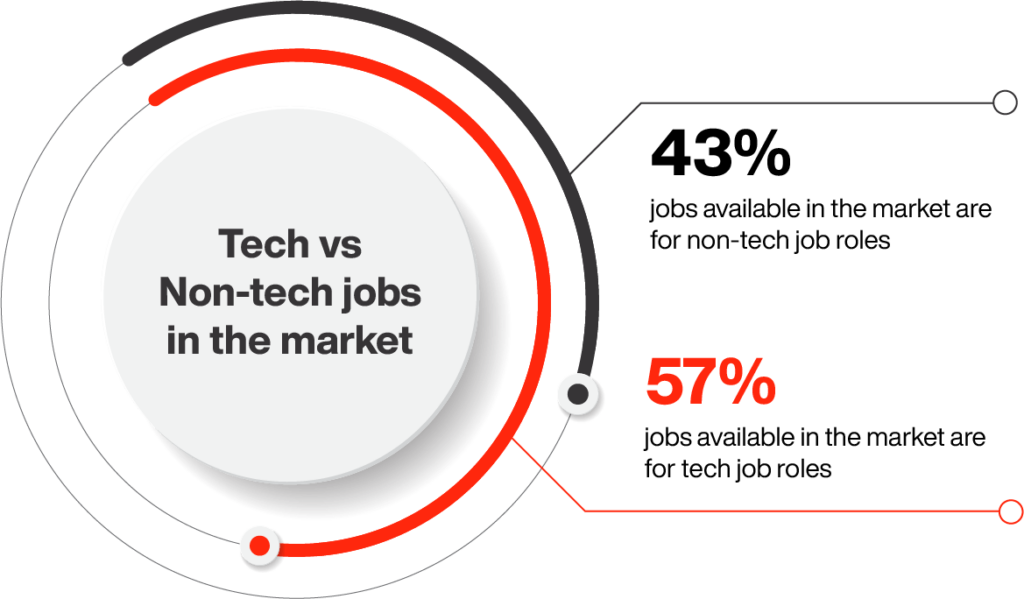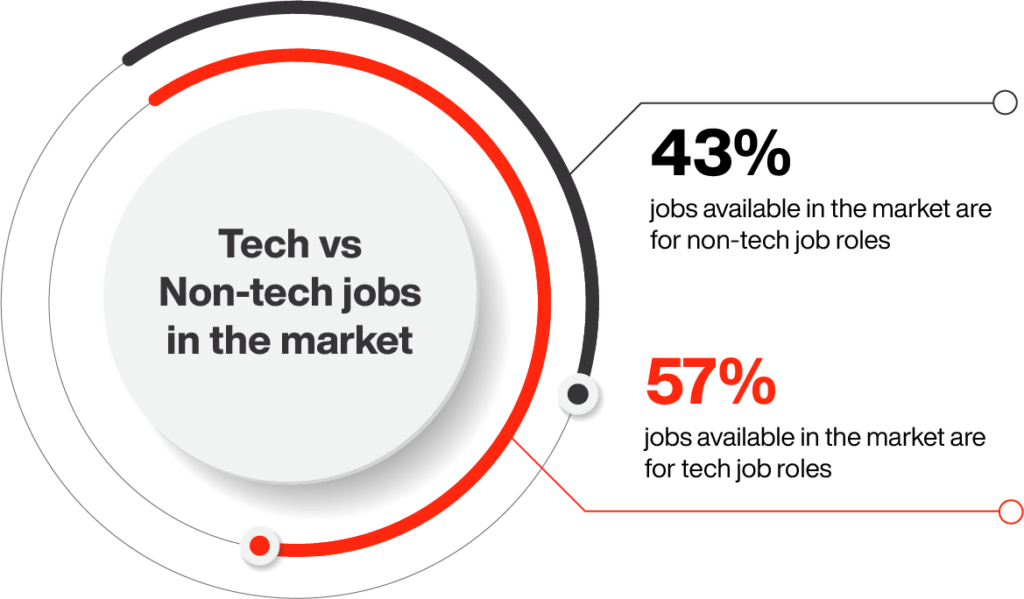Unlocking Lucrative Data Science Careers: Thriving in Analytics with a Non-Technical Degree
In the ever-evolving landscape of data science and analytics, a non-technical degree shouldn’t deter you from pursuing a rewarding career. Data-driven decision-making spans across industries, offering ample opportunities for individuals with diverse backgrounds. Let’s explore how to embark on this journey, the potential types of roles, salary prospects, growth potential, and a comparison with those holding technical degrees.
Getting Started:
While technical degrees can provide a foundational advantage, non-technical degree holders can enter the field through various routes:
- Skill Development: Learn relevant tools like Python, R, and SQL, and master data manipulation, visualization, and basic statistical concepts. Online courses and resources offer comprehensive learning opportunities.
- Certifications: Acquiring industry-recognized certifications (e.g., Google Analytics, Tableau) can bolster your credibility and demonstrate expertise.
- Projects and Portfolios: Showcase your skills through personal projects or freelance work. These tangible examples illustrate your abilities to potential employers.
Types of Roles:
Data science and analytics encompass a range of roles, some of which are accessible to non-technical degree holders:
- Data Analyst: Analyze data to extract insights and trends, aiding decision-making.
- Business Analyst: Translate data-driven insights into actionable business strategies.
- Market Research Analyst: Analyze market trends, consumer behavior, and competition to inform business strategies.
- Digital Marketing Analyst: Utilize data to optimize digital marketing campaigns and user experience.
- HR Analyst: Analyze employee data to enhance workforce planning and organizational performance.
Salary and Growth Potential:
Salaries in data science and analytics vary based on factors such as location, experience, and job role. While non-technical degree holders might start slightly lower than their technically-trained counterparts, growth potential remains promising:
- Data Analyst: Median salary varies but can range from $50,000 to $80,000. With experience, senior analysts earn over $100,000.
- Business Analyst: Median salaries are often similar to those of data analysts. Growth into management positions can lead to higher earnings.
- Market Research Analyst: Median salaries range from $50,000 to $70,000. Specializations can lead to increased earning potential.
- Digital Marketing Analyst: Median salaries align with data and business analysts. As digital marketing gains importance, salaries are expected to rise.
- HR Analyst: Median salaries range from $50,000 to $70,000. As analytics transform HR practices, demand for skilled analysts is increasing.
If you are looking to answer WHICH data science role to aim for, reach us at +9 734966 2320 (WhatsApp) and our Expert will help you decide ! Yes, we will do an unbiased test, check where your strengths match the job roles and suggest the Jobs where YOU will succeed . So do reach us.
Growth Potential and Comparison:
While technical degree holders might initially have a more direct entry, non-technical degree holders can thrive over time:
- Learning Agility: Non-technical graduates often bring unique perspectives, making them adept at identifying insights others might overlook.
- Interdisciplinary Skills: Business acumen, communication, and problem-solving skills from non-technical degrees are highly valued in data-driven roles.
- Specialization: Non-technical graduates can carve niches by combining domain knowledge with data analysis skills.
- Continuous Learning: The data landscape evolves rapidly. Both non-technical and technical professionals need to stay updated.
- Advancement: With experience and continuous learning, non-technical graduates can move into managerial roles, bridging the gap between technical and business teams.
In conclusion, a non-technical degree needn’t be a barrier to a fulfilling data science and analytics career. Building skills, earning certifications, and developing a strong portfolio can pave the way for success. While initial salaries might differ, growth potential and diverse skills can create a competitive edge over time. Embrace your unique background and seize the opportunities that data science and analytics offer.
#NonTechnicalDataAnalytics #DataScienceCareers #AnalyticsForAll #BusinessIntelligence #CareerDiversity #DataDrivenInsights #DataAnalysisSkills #UnlockingOpportunities #NonTechAdvantage #AnalyticsSuccess #DiverseSkillsInData #CareerGrowthInAnalytics #DataDrivenDecisionMaking #SkillsOverDegrees #DataIndustryInsights #AnalyticsJourney #CareerPathInData #BusinessAcumenInAnalytics #BridgingTheGap #DataDrivenProfessionals


